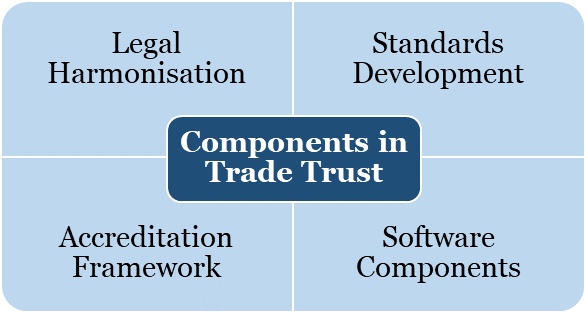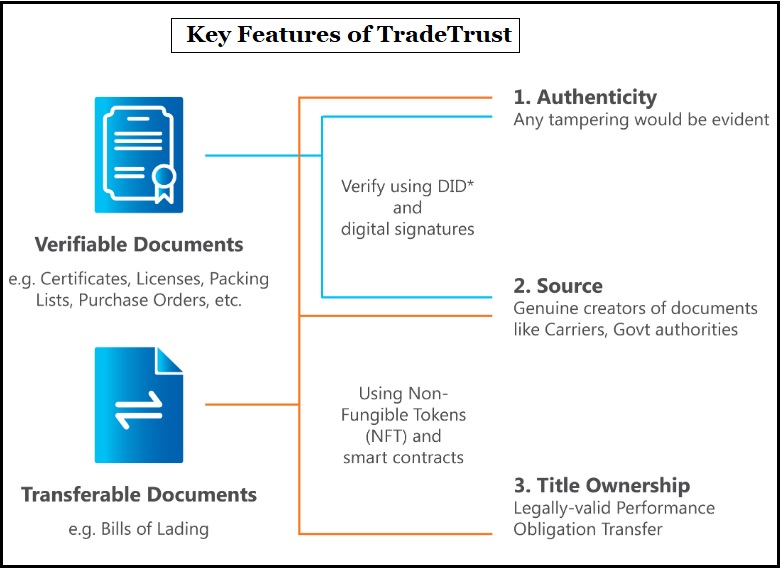7667766266
enquiry@shankarias.in
India and Singapore piloted the first live paperless transaction using the Trade Trust Platform marking another milestone in the digital connection between two countries.
|
Bilateral Trade- India and Singapore |
|
What is Trade Trust Platform?
It is a joint initiative to enable interoperable electronic Bills of Lading (eBLs) backed Letter of Credit (LC) transactions between Singapore and Indian banks and companies.


References